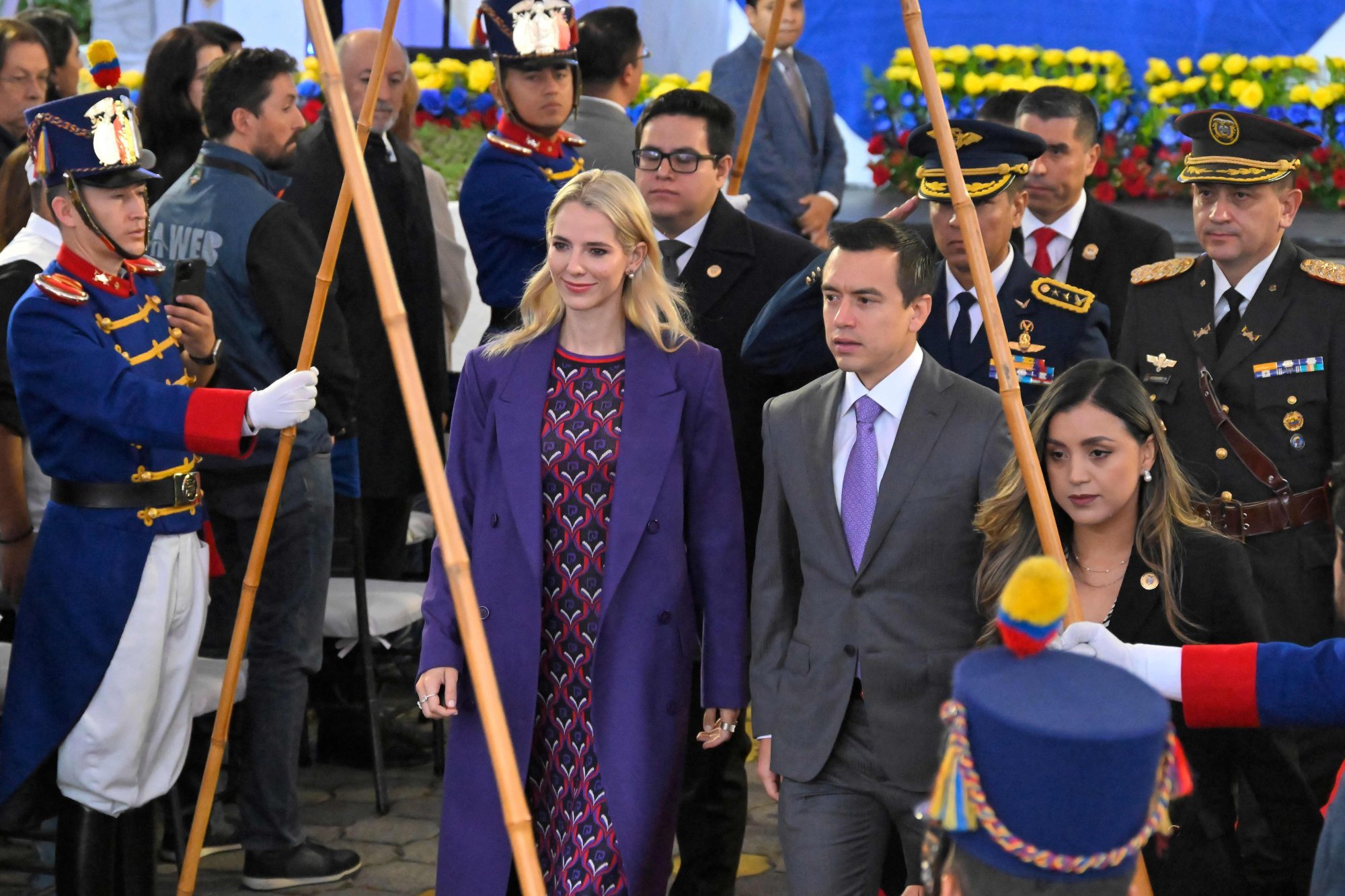
Ecuador prison director killed as voters head to polls
- South American country’s SNAI prisons agency did not give more details on the death of Cosme Damian Parrales Merchan
- Ecuadorans were voting on Sunday in a referendum on proposed tougher measures to fight a surge in gang-related crime
Ecuadorean prison director Cosme Damian Parrales Merchan was killed on Sunday, the South American country’s SNAI prisons agency said in a statement, even as citizens head to the polls to vote in a referendum over a raft of security measures.
SNAI did not give more details on the death of Parrales, who headed the Manabi No 4 prison in the west of the country. The agency said it would work with the investigating authorities to determine those responsible.

Ecuadorans were voting on Sunday in a referendum on proposed tougher measures to fight a surge in gang-related crime.
The once-peaceful South American country has been grappling with a shocking rise in violence that has seen two mayors killed this week.
The terrorising streak has been blamed on gangs with links to transnational cartels using Ecuador’s ports to ship drugs to the United States and Europe.
The results of the referendum “will define the course and the state policy that we will take in order to face the challenge” of organised crime, said President Daniel Noboa as voting began in Quito.
Nearly 13.6 million of the country’s 17.7 million inhabitants are eligible to cast a “Yes” or “No” ballot over 10 hours of voting.
International leaders condemn Ecuador after police raid on Mexico embassy
Ecuador’s CNE electoral council said that by mid-afternoon some 60 per cent of voters had come to the polling booths and voting had closed in nearly half of polling places abroad.
Strong rains have affected installation of some 15 voting centres across eight of the country’s provinces, it said, though in much of these the problems had been overcome, it said.
“We continue on a peaceful, calm, safe voting day,” National Electoral Council President Diana Atamaint said.
Noboa declared in January a state of “internal armed conflict” with about 20 criminal groups blamed for a spasm of violence sparked by the jailbreak of a major drug lord, still on the run.
Gangsters kidnapped dozens of people, including police and prison guards, opened fire in a television studio during a live broadcast, and threatened random executions in the days-long outburst that caused about 20 deaths.
Noboa imposed a state of emergency and deployed soldiers to retake control of the country’s prisons, which had become the nerve centre for gang operations and a bloody battleground that has claimed the lives of more than 460 inmates in three years.
Despite these efforts, the violence has persisted. Two mayors have been killed in the past week, making it five in a year and three in less than a month.

Since January last year, at least a dozen politicians have been killed in Ecuador, including presidential candidate Fernando Villavicencio, who was gunned down last August after a campaign event.
In Sunday’s vote, Noboa is seeking popular backing for his plans to clamp down even harder on those responsible for such acts.
Citizens are being asked to approve an expansion of military and police powers, significantly boosting gun controls and imposing harsher penalties for “terrorism” and drug trafficking.
Noboa is also proposing to change the constitution so that Ecuadorans wanted abroad for organised crime-related offences can be extradited.
The extradition issue is important to Alexandra Rocha, 25, a teacher, who said she voted in favour.
“I feel that the laws here are not strong enough to make people who commit a crime pay for what they are doing,” Rocha said.

But another voter, Dulce Negrete, “voted no to everything”, believing that extradition serves no purpose - and that the army’s participation in operations against gangs has mainly resulted in “more deaths”.
Last year, the country’s murder rate rose to a record 43 per 100,000 inhabitants - up from a mere six in 2018, according to official data.
In a publication on Friday, polling firm Gallup said no other region in the world, excluding active war zones, felt less secure in 2023 to residents than Ecuador’s Guayas province.
Other polls show a majority of Ecuadorans will probably vote for Noboa’s reforms.
Mexico cuts ties with Ecuador after ex-VP Glas arrested in embassy raid
The vote is taking place in the same week that Ecuadorans faced power cuts of up to 13 hours as drought left major hydroelectric reservoirs nearly empty.
The government ordered workers to stay at home for two days in a bid to save scant energy resources.
Noboa has put some of the blame on “sabotage” without naming anyone in particular.
Additional reporting by Agence France-Presse

